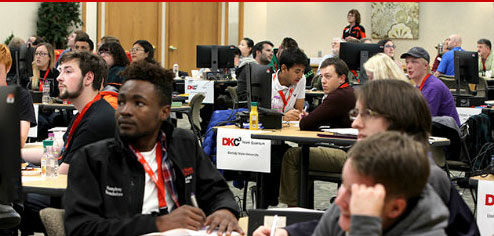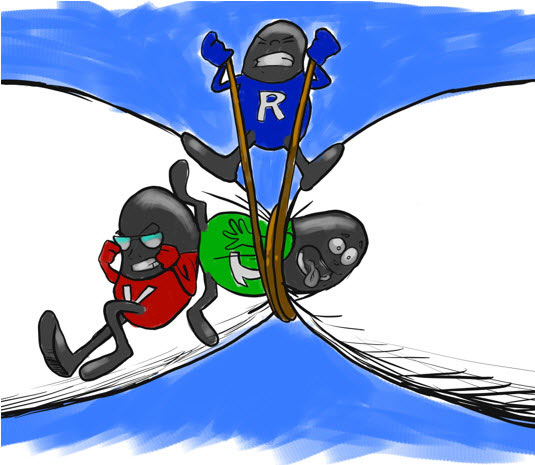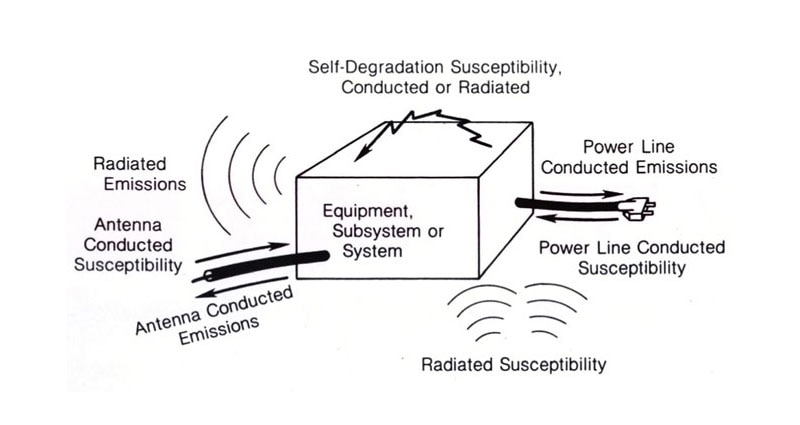The Path to Excellence in Teaching Math
There is a brouhaha in California over the hiring of qualified teachers. There are particular concerns about shortages of math teachers. Apparently a significant portion of the people conducting California high school math classes were actually trained in some other discipline or have “substandard” permits and credentials. Full credentials in the Golden State typically require some sort of bachelor's degree, completion of a university credentialing program, working as a student teacher, and perhaps some testing or additional coursework.
With this credentialing in mind, it is interesting to consider what happened when one arguably “unqualified” teacher in Florida went from teaching high school golf to teaching math. The teacher is Will Frazer. Frazer has gotten acclaim over the past few years because he founded and heads up a high school math team that has won 13 of the last 14 U.S. national math championships.
This achievement is all the more noteworthy because the school employing Frazer, Buchholz High School near Gainsville, Fla., is in no way an elite institution. It has about 2,200 students, and the U.S. News and World Report ranks it at 1,172 nationally out of 17,843 schools—not bad, but not exactly catering to a privileged few.
 (Image source: DigiKey)
(Image source: DigiKey)
You may be aware of the hand-wringing about the perennially poor showing of U.S. kids in a test called the Trend in International Math and Science Study. For decades, U.S. students have gotten scores on TIMSS trailing those of their counterparts in over a dozen countries. So there has been a lot of interest in how Frazer has been able to continually field a prize-winning team of math scholars hailing from a high school that is good but not great.
You can get an idea of what goes on behind the scenes at Buchholz from the accounts in press coverage appearing as Frazer's reputation has grown. It is clear that, as a former coach, Frazer has his head in the game. He starts cultivating potential math team members in elementary school and steers them to accelerated math classes in middle school. He even tracks down test scores of students in his district and recruits high achievers, much in the way a football coach might court promising prospects.
Press accounts also make it clear that Frazer-run math classes don't look much like traditional courses, even those in honors math tracks. Math team members are combined into one class and get two years-worth of math in one school year. But class work puts a special emphasis on how to approach tricky problems. Also, Frazer emphasizes using pattern recognition and symmetry to get speedy answers rather than working more problems closely resembling those covered in homework. And besides teaching accurate problem solving, Frazer's classes emphasize speed because competitive tests are timed.
Another novel approach found in Frazer's classes is the use of math students from upper classes to teach younger team members coming up behind them. High schoolers who teach earn community service hours as compensation. As one press account relates, this practice takes advantage of the “cool factor” of being around someone who is a few years older and is “cheap, innovative and wildly effective.”
It's also clear that Frazer's math team members have their head in the game as well. Hundreds of them come to school for four hours each weekday for a month during their summer vacation. In the midst of the pandemic when schools were shut down, Frazer volunteered to teach kids in person from an empty wing of his church. Of the 145 students he invited, 140 signed up.
That brings us back to the teacher qualifications that schools in California look for. It's not clear that Frazer could have met them when he first began teaching. His main academic credential is a bachelor's degree in accounting. He had retired from bond trading on Wall Street prior to embarking on his teaching career in the late 1990s. He's quoted as saying he got into teaching because he got bored playing golf.
Of course, Frazer is a maverick. He's told reporters that he attributes his success to ignoring the system, the state of Florida, and the school district. He claims not to use the state's lesson plans and has said he'd quit rather than follow all of the state's recommendations.
One suspects that Frazer's nonconformist tendencies would have been evident when he interviewed for his first teaching job. Obviously he was hired despite them. And someone in his school district saw no problem with letting a person hired to teach golf transition into teaching math.
The picture painted by these events is one of school officials who have open minds. You'd have to wonder whether a more rigid focus on credentials and procedures would have kept Frazer out of the teaching profession. That's perhaps a point to ponder for school districts facing a shortage of math teachers.

Have questions or comments? Continue the conversation on TechForum, DigiKey's online community and technical resource.
Visit TechForum










